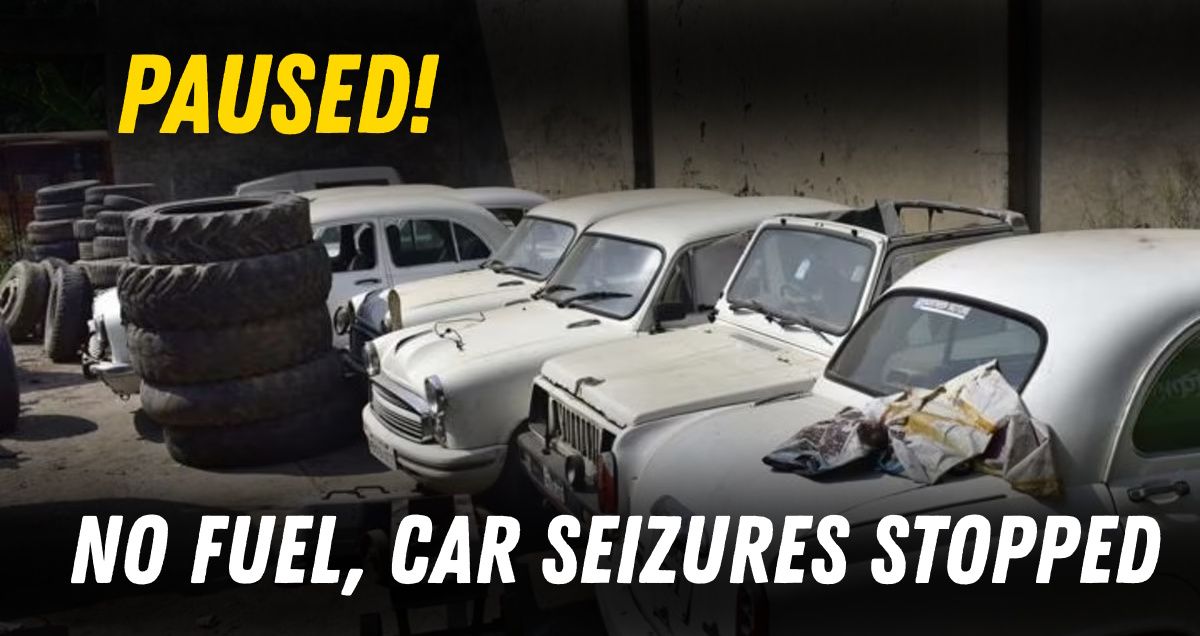Delhi's Fuel Ban on Old Vehicles Suspended After Public Backlash


The Delhi government recently tried to crack down on pollution by banning fuel for older cars and bikes, but the plan backfired almost immediately. After just a few days of angry reactions from residents, technical hiccups, and legal challenges, officials decided to hit pause on the whole thing.
On July 1, 2025, Delhi became the first city in the National Capital Region (NCR) to roll out a strict new rule: petrol vehicles older than 15 years and diesel vehicles older than 10 years wouldn’t be allowed to buy fuel. The idea was to get rid of these so-called “End-of-Life” (EOL) vehicles, which were blamed for a big chunk of the city’s air pollution.
This policy was supposed to affect over 6.2 million vehicles - including cars, bikes, trucks, and even some vintage models. The plan was to use special cameras at fuel stations to spot old vehicles by reading their license plates and then deny them fuel.
Almost right away, the policy ran into trouble. Here’s why:
Technical Problems: The cameras and computer systems weren’t working smoothly. Many couldn’t read the new High Security Registration Plates (HSRP) that have been standard since 2019. Some cameras and sensors didn’t work at all.
Confusion at Petrol Pumps: Petrol station workers didn’t get enough training or notice. Many only found out about the rule a few days before it started.
No Coordination: The system was only set up in Delhi, but not in neighboring NCR cities like Gurugram or Noida. So, someone could just drive across city lines to fill up.
The biggest problem, though, was the public reaction. Delhi residents flooded social media with complaints. Many pointed out that their older cars were still in great shape and passed all pollution checks, so it felt unfair to be forced to scrap them.
One person shared that his family’s 16-year-old Mercedes, which was well-maintained and barely used, was suddenly considered “vintage scrap.” Another had to sell a luxury SUV, which had hardly been driven during the pandemic, for a fraction of its value.
People also pointed out a weird contradiction: the government collects 15 years of road tax on diesel vehicles, but then bans them after just 10 years. This made a lot of people feel cheated.
For the short time the rule was in place, enforcement was tough. On the first day, 80 vehicles were impounded at fuel stations. There were no appeals or second chances—if your car was too old, it was towed away, and you got a hefty fine.
Fuel station owners weren’t happy either. Their association went to court, arguing that it wasn’t fair to make them enforce the rule. The Delhi High Court agreed to hear the case, and the government was forced to respond.
Meanwhile, politicians started blaming each other. The new environment minister accused the previous government of making life hard for car owners and called the policy “Tughlaqi,” meaning harsh and out of touch.
Delhi has a serious air pollution problem, especially in winter. Studies show that vehicles are responsible for more than half of the city’s air pollution. The government was under pressure to act, especially since the Supreme Court and National Green Tribunal had already ordered bans on old vehicles years ago.
The original plan was to expand the ban to other NCR cities like Gurugram and Noida later this year. But with Delhi putting the brakes on the policy, it’s unclear if those places will go ahead.
For now, the Delhi government says it’s looking for better solutions. Instead of banning all old cars, they might focus on targeting only those that actually pollute, regardless of age. This would mean well-maintained older vehicles could stay on the road, as long as they pass pollution checks.
Delhi’s failed fuel ban shows how tough it is to balance environmental goals with fairness and practicality. While everyone agrees that air pollution is a huge problem, any solution needs to be well-planned, easy to enforce, and most importantly, fair to the people who follow the rules.